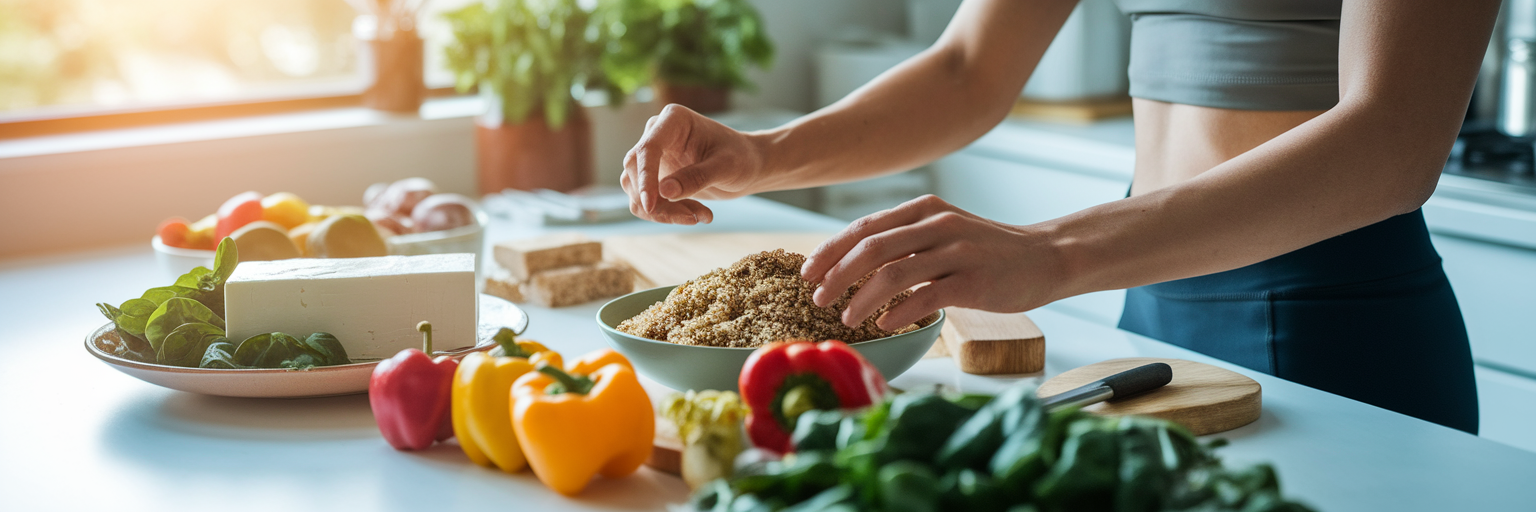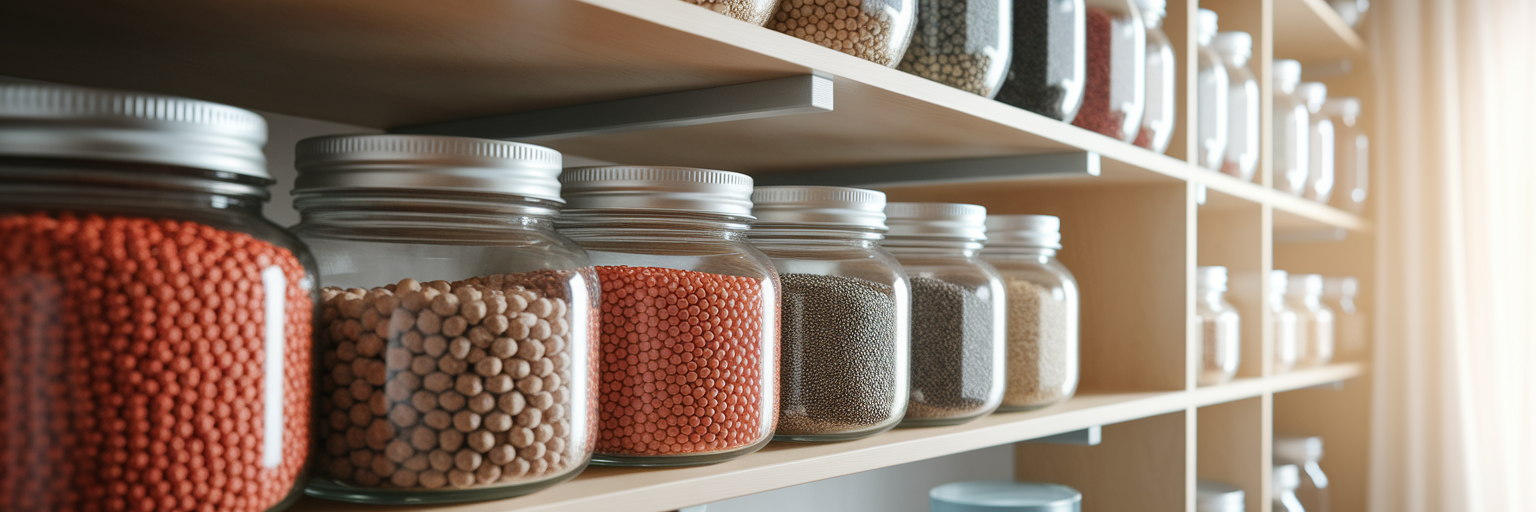The Weight Loss Dilemma: Losing Fat, Not Muscle
You're eating clean, hitting your workouts, and the number on the scale is finally dropping. But a nagging worry starts to creep in: are you losing precious muscle along with the fat? It’s a common concern. When you're in a calorie deficit, your body needs to find fuel somewhere. Think of it like a car running low on gas. Ideally, it taps into its reserve tank—your fat stores. But without the right kind of fuel and maintenance, it might start breaking down parts of the engine itself, your muscle tissue, for energy.
This is the central challenge of any effective weight loss plan: ensuring you are losing weight without losing muscle. Preserving lean muscle is not just about aesthetics. It keeps your metabolism humming, supports your strength, and contributes to a toned, healthy physique long after the diet is over. So, how do you send your body the right signals to burn fat and spare muscle?
The answer lies in strategic protein intake. For those on a plant-based journey, this is where high-quality vegan protein becomes your most valuable tool. It provides the essential building blocks your body needs to protect and repair muscle tissue, even when you’re consuming fewer calories. Modern science fully supports its effectiveness, making it a powerful ally in achieving your body composition goals.
Why Vegan Protein is Your Muscle's Best Friend

For years, myths have circulated about plant-based diets and muscle. But the science tells a different, more powerful story. A well-planned vegan diet provides everything your body needs to not only survive but thrive, especially when it comes to preserving lean mass during weight loss. It all comes down to understanding a few key biological processes.
The Science of Muscle Protein Synthesis (MPS)
Let's talk about Muscle Protein Synthesis, or MPS. This is the biological process your body uses to repair muscle damage from exercise and build new muscle tissue. When you're in a calorie deficit, your body can enter a catabolic state, breaking down muscle. The secret to protecting your muscle is to keep MPS elevated. Consuming adequate protein provides the raw materials, known as amino acids, that trigger this essential repair and building process, effectively telling your body to hold onto its muscle.
Getting All Your Essential Amino Acids
Have you ever heard that plant proteins are "incomplete"? It's a persistent myth that needs clearing up. The truth is, a varied vegan diet provides all nine essential amino acids required to stimulate MPS. In fact, a 2024 review in Nutrition Reviews confirmed that well-planned vegan diets support muscle growth and maintenance at rates comparable to omnivorous ones. The key is variety. By combining different plant sources throughout the day, you create a complete amino acid profile. Think of it like assembling a team where each player has a unique skill.
- Legumes: Lentils, chickpeas, and black beans are protein powerhouses.
- Soy Products: Tofu, tempeh, and edamame offer high-quality, complete protein.
- Nuts & Seeds: Chia, flax, and hemp seeds are packed with protein and healthy fats.
- Grains: Quinoa and buckwheat are excellent grain-based protein sources.
How Much Protein Do You Really Need?
So, what's the magic number? For active individuals aiming to preserve muscle during weight loss, research points to a target of 1.2 to 2.0 grams of protein per kilogram of body weight. This is entirely achievable with a vegan diet for lean muscle. This recommendation applies across different age groups, making it a universally effective strategy. For those days when you're short on time or need an extra boost, incorporating some of the best protein powders we've reviewed can be a convenient and delicious way to hit your goals.
Feel Fuller Longer and Crush Cravings
Beyond muscle preservation, vegan protein sources offer another huge advantage for weight loss: they help you manage hunger and cravings. This is where the journey becomes less about willpower and more about smart food choices that work with your body, not against it.
The Power of Fiber for Satiety
Most plant-based protein sources, like beans, lentils, and whole grains, are incredibly rich in fiber. Fiber is your secret weapon for satiety. Think of it as a sponge in your stomach; it absorbs water and expands, helping you feel full and satisfied for hours after a meal. This natural appetite control makes it much easier to stick to your calorie goals without feeling constantly deprived or hungry.
Eating More with Fewer Calories
Here’s a psychological win for anyone on a diet: plant-based foods often have a lower energy density. This means you can eat larger, more visually satisfying portions for fewer calories. A big, colorful salad topped with chickpeas and seeds feels much more abundant than a small, calorie-dense piece of meat. This ability to fill your plate helps combat the feelings of restriction that can derail weight loss efforts, making plant based protein for weight loss a sustainable approach.
The Mind-Body Connection to Cravings
Cravings aren't just physical; they're emotional. A nutrient-dense, plant-based diet can have a profound impact on your mood and energy levels. By fueling your body with vitamins, minerals, and antioxidants, you avoid the energy slumps that often lead to reaching for sugary, processed snacks. This approach is backed by health experts, with organizations like the Obesity Medicine Association highlighting that replacing animal products with protein sources like legumes and nuts is a key strategy for successful weight management.
Your Daily Vegan Protein Playbook for Weight Loss

Knowing the science is one thing, but putting it into practice is what delivers results. Creating high protein vegan meals doesn't have to be complicated. It’s about stocking your kitchen with the right ingredients and learning a few simple hacks to set your future self up for success.
Start by building a high-protein pantry. Here are some staples to always have on hand:
- Canned lentils and chickpeas
- Firm or extra-firm tofu
- Tempeh
- Edamame (frozen)
- Hemp seeds, chia seeds, and flax seeds
- Quinoa and oats
- Nutritional yeast
- A quality vegan protein powder
Next, incorporate these simple protein hacks into your daily routine:
- Add a few tablespoons of hemp seeds to your morning oatmeal or smoothie.
- Snack on a cup of steamed edamame instead of chips.
- Blend a scoop of our clean, tasty chocolate vegan protein into your post-workout smoothie.
- Sprinkle nutritional yeast on popcorn, pasta, or salads for a cheesy, protein-rich flavor.
Remember the crucial partnership between diet and exercise. Your protein intake provides the "bricks" for your muscles, but resistance training is the "construction crew." It signals to your body that your muscle is essential and needs to be preserved. If you need inspiration for your meals, check out these 3 easy vegan protein recipes you'll actually crave to get started.
| Protein Source | Approx. Protein per Serving | Best For |
|---|---|---|
| Lentils (1 cup, cooked) | 18g | Soups, stews, salads, and vegan meatloaf |
| Firm Tofu (1/2 cup) | 22g | Scrambles, stir-fries, baking, and grilling |
| Tempeh (3 oz) | 16g | Sandwiches, bowls, and as a bacon substitute |
| Edamame (1 cup, shelled) | 17g | Snacks, salads, and side dishes |
| Hemp Seeds (3 tbsp) | 10g | Smoothies, oatmeal, and yogurt toppings |
| Quinoa (1 cup, cooked) | 8g | Grain bowls, salads, and as a rice replacement |
| Beyond Good Foods Vegan Protein (1 scoop) | 20g | Post-workout shakes, smoothies, and protein pancakes |
Proof in the Plants: Evidence of Success
This isn't just theory; it's a strategy proven effective for millions of people. Recent studies consistently show that individuals on vegan diets often achieve significant weight loss and improvements in body composition. The reason this happens goes back to the core concepts we've discussed: the high fiber content keeps you full, the lower energy density allows for satisfying meals, and the ample protein helps preserve muscle mass.
We're seeing this play out on a large scale. For example, New York City's initiative to make plant-based meals the default option in its public hospitals has been met with overwhelming success, with high patient satisfaction rates. This demonstrates that plant-forward eating is not a niche trend but a mainstream, effective approach to better health that people genuinely enjoy.
The growing popularity of plant-based eating across the United States is a testament to its effectiveness. More people are discovering how to maintain muscle on a vegan diet while achieving their weight loss goals. The evidence is clear: with the right plan, you can successfully transform your body with the power of plants. For more insights and success stories, our blog is packed with helpful articles to guide you on your journey.
Making Your Plant-Powered Plan Stick
Embarking on a new way of eating can feel like a big change, but it doesn't have to be overwhelming. Losing fat while keeping muscle on a vegan diet is completely achievable when you have the right strategy and mindset.
Let's recap the key takeaways:
- Prioritize Protein: Aim for 1.2-2.0g of protein per kg of body weight to protect your muscles.
- Embrace Fiber: Use high-fiber foods to boost fullness and control hunger.
- Plan Ahead: A little meal prep goes a long way in ensuring you stay on track.
The best way to make a lasting change is to start small. You don't have to go all-in overnight. Try incorporating "Meatless Mondays" or swapping just one meal a day with a plant-based alternative. Small, consistent steps build momentum and lead to big results.
If this was helpful, share it with a friend on their own fitness journey! Ready to get started? Explore our collection of clean, plant-based proteins and supplements to support your goals.



